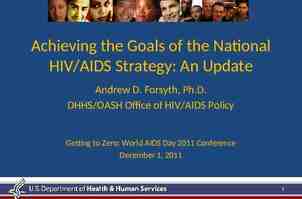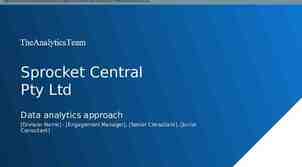2024 Priorities & Predictions An overview for NHRA Los Angeles
33 Slides9.20 MB

2024 Priorities & Predictions An overview for NHRA Los Angeles Institute for Corporate Productivity

We discover the people practices that drive high performance to help you see what’s coming around the curve.

i4cp Members (partial list) Effective 6/2023

High-Performance Defined Revenue growth Market share Profi tability Customer sati sfacti on Our Research Focus W h at d o h i g h - p e r fo r m a n c e o rga n i zati o n s d o d i ff e re n t l y ? D o t h o s e p ra c ti c e s co r re l at e t o m a r ke t p e r fo r m a n c e ? Over a five-year period. Next Practice Defined Practices that are highly correlated with market performance, but only a few organizations are implementing it.

TODAY’S DISCUSSION The 2024 Priorities of: Chief Human Resource Officers Chief Diversity Officers Chief Learning & Talent Officers People Analysis Leaders Talent Acquisition Leaders Total Rewards Leaders

Featuring insights from HR leaders at and Download the report

QUESTIONS EACH YEAR, We ask i4cp board members to share their top priorities for the coming year, as well as their predictions for the future for their respective functions.

2024 Top Priorities Chief Human Resource Officers 1. Training leaders (at all levels) to establish trust, exemplify the organization’s values, and lead in new and evolving work structures. 2. Leading organizational initiatives to uncover where AI can increase workforce efficiency and effectiveness. 3. Preparing the HR team for continued scrutiny and criticism of DE&I, ESG, and other programs. 4. Improving culture health and ensuring leaders understand its direct link to financial performance.

2024 Predictions Chief Human Resource Officers Rethinking HR structure and processes will take on new meaning as the function becomes more sophisticated, tech enabled, and GenAI-powered. This will require upskilling for leaders to manage teams that incorporate AI into their workflows. Strong analytics skills will be a requirement as HR continues to be more data driven. Every level of the function is a candidate to be upskilled to work confidently and effectively with new technology. Trust will have to be rebuilt in many organizations, as both private and public skirmishes about return-to-the-office mandates have brought deep cultural rifts to the forefront. HR leaders will be resilient catalysts of change providing leadership across various initiatives and challenges. These initiatives are complex and include evolving AI technologies; data analytics; equity and inclusion; delivering on great employee experience to blended workforces of traditional, hybrid, remote, and contract workers;

2024 Top Priorities Chief Diversity Officers 1. Strengthening DE&I strategies to ensure alignment to business goals— from global talent needs to helping guide leaders as they navigate workforce divisiveness and geopolitical challenges. 2. Fostering inclusion for all, starting with emphasis and ongoing education on inclusive leadership. 3. Building more inclusive and collaborative cultures by ensuring psychological safety throughout the employee experience. 4. Expanding tools and resources to enable and support accountability for

2024 Predictions Chief Diversity Officers Actions will speak more loudly than words; there will be less reliance on public statements and gestures in support of diversity and inclusion. Instead, organizations will favor more strategic engagement and decisive, demonstrable actions to sustain inclusive cultures. Scrutiny of DE&I programs and initiatives will continue and probably intensify. While shifting demographics and markets worldwide make DE&I work even more critical, CDOs nevertheless anticipate continued pressure, scrutiny, risk of legal challenges, and even attacks on their function, including ESG efforts and associated work. Cross-functional collaboration will increase (e.g., between DE&I and talent acquisition) and business units as leaders combine efforts to work toward meeting representation goals, de-bias existing systems, move forward on parity goals, refine recruitment activities for maximum impact, and invest in diverse sourcing. Leading with DE&I and ESG data tied to business objectives will be more common,

2024 Top Priorities Chief Learning & Talent Officers 1. Enabling talent processes, from identification and selection of candidates to prescription of learning interventions and performance assessments, via skills-centric methodologies. 2. Increasing people leader capability to improve effectiveness in team and employee outcomes. 3. Pursuing AI-driven automation and insights to simplify, optimize, and enhance talent management. 4. Providing meaningful developmental opportunities and experiences

2024 Predictions Chief Learning & Talent Officers Expect continued and rapid disruption from AI, automation, and data analytics, but these technologies will also support improvements to the employee experience in pivotal moments that matter. These elements will be essential to the success of efforts to address labor shortages in key roles or skills, geopolitical instability, and macroeconomic issues that will require greater workforce flexibility and new investments to support the business. GenAI will be leveraged to build skills taxonomies for organizations and make recommendations of training based on current capabilities of the workforce and skills needed in the future. Personalization will take center stage through GenAI-enabled analysis of learning patterns and preferences. Tailored learning and development will strengthen engagement and speed upskilling.

2024 Top Priorities People Analytics Leaders 1. Automating delivery of data analytics to the organization through new platforms and capabilities. 2. Upskilling HR in data acumen, especially related to productivity and culture drivers. 3. Enabling AI to connect data across business functions and platforms to provide better workforce insights. 4. Applying predictive modeling using generative AI to assist in workforce planning.

2024 Predictions People Analytics Leaders Strategies and decisions will increasingly be informed by GenAI through sophisticated data analytics and predictive modeling. In forward-looking organizations, the people analytics function will be relied on to provide deep workforce insights to enable faster and better-informed decisions by senior leaders. Delivery of data and insights will be automated, such as the analysis of hybrid work models in workforce planning. People analytics will also take on more performance metrics, like measuring the efficiencies of development programs and identifying future workforce needs. HR’s analytical capability will persist in being a challenge to build, particularly as the use of AI continues to expand. Developing HR skills to enable this work will be more challenging than expected, and increasing data acumen in HR will require significant investment in training and development. The number of people analytics leaders reporting directly to the CHRO will continue to grow as the function becomes even more critical to the success of the

2024 Top Priorities Talent Acquisition Leaders 1. Balancing the use of AI with human touchpoints to optimize candidate experience, reduce selection bias, and speed processes. 2. Aligning to skills-based recruitment and development. 3. Increasing collaboration with talent leaders and HR business to enhance employer brand and strengthen connections between employee value proposition and employee experience. 4. Enhancing and expanding intern and early career programs to build more performance-ready and cost-effective talent pipelines.

2024 Predictions Talent Acquisition Leaders AI will fully manage the candidate cycle and improve on tasks such as refining job descriptions, suggesting SEO terms to enhance visibility, resume screening, managing initial interactions with applicants, etc. GenAI will become relied on to develop policies and procedures for recruiters to ensure consistent candidate experience, check job postings for brevity and clarity, flag potential bias, conduct candidate skill-to-role matching, support skills assessments, and draft interview questions. AI advancement will require full-scale reskilling of TA in many organizations. While AI will continue to eliminate redundancies, it will require that the function is prepared to adapt to changing technology and processes. As TA is upskilled, there will be greater focus on data analytics and predictive analytics. More strategic responsibilities will be added as GenAI is integrated into all aspects and phases of talent acquisition. Early career hiring strategies will be overhauled, and proactive hiring strategies will become more common. Also referred to as “designate hiring” programs, these programs hire for key skills without an open role for immediate placement. Allowing timeframes ranging from 60 to 180 days before a role is open or defined enables organizations to acquire key talent before the competition does. Generative AI will be leveraged to guide recruitment strategy and to analyze the skills

2024 Top Priorities Total Rewards Leaders 1. Improving pay equity and transparency across roles. 2. Aligning compensation with evolving organizational priorities. 3. Leveraging GenAI to deliver personalized rewards and benefits that address the needs of the individual and the business. 4. Rewarding leaders who deliver on positive business outcomes and advance employee

2024 Predictions Total Rewards Leaders Data and analytics will see concurrent evolution that will drive efficiencies and improvements in total rewards planning and reporting, while also enabling more strategic and objective identification of highimpact priority areas. GenAI will deliver on personalization and be leveraged to analyze data to understand individual employee performance, skills, and contributions, enabling organizations to provide more personalized and meaningful compensation packages. Pay transparency legislation will expand, particularly in the U.S., requiring that organizations disclose their compensation practices, which will fuel renewed attention to pay equity and pressure for openness. Compensation and rewards will be tied to GenAI skills, and upskilling and reskilling will increasingly be tied to compensation.

4 THE PREDICTIONS 1. High-performance organizations will step up HR’s involvement in AI strategy 2. Forward-looking organizations will create future-of-work leadership roles 3. Culture measures—both quantitative and qualitative—will be standard metrics 4. Macro pressures will continue to drive workforce divisiveness and challenge HR

1. Highperformance organizations will step up HR’s involvement in AI strategy

1. High-performance organizations will step up HR’s involvement in AI strategy Questions for you and your team: 1. How do we ensure that leadership embraces the utilization of generative AI when it comes to strategy discussions, process discussions, and goal setting? 2. How will we attract, develop, and retain AI-ready talent? 3. What policies and guidelines are we putting in place to make it safe and effective for our workforce to experiment with generative AI? 4. Will our culture enable or impede our strategic plans for the use of generative AI? Will it embrace or resist that AI-ready talent?

9 Practices of AI Innovators Organizations that are AI Innovators are more likely to: PLAN & PREPARE Define a business case for AI EXECUTE Provide employees with guidelines to govern use of AI Articulate how AI implementation will impact business or other outcomes. Set succinct guidelines or rules for how and in what circumstances employees may and may not use AI at work. Create an AI strategic plan or framework Deconstruct job roles affected by generative AI Develop structured approaches that guide activities and decisions for the efficient integration of AI. Communicate about AI to reduce fear and uncertainty Provide consistent, clear information designed to ease employee apprehension. Inventory tasks that make up a specific role and identify those that can/will be offloaded to technology. Hire for AI-specific roles or skills in HR List skills necessary to use and strategically think about AI in job descriptions and create new roles as maturation of AI use develops. Source: Is HR Already Behind in the AI Revolution? (2023), Institute for Corporate Productivity (i4cp) SCALE Ensure employees have a safe, secure environment for experimentation Establish a place or space within or external to the organization that enables employees to experiment with AI. Encourage employees to identify use cases Actively promote development of use cases from employees enterprise wide. Develop workers to effectively leverage AI Provide employees with training and development to safely and effectively use AI.

PLAN & PREPARE Communicate about AI to reduce fear and uncertainty Provide consistent, clear information designed to ease employee apprehension. EXECUTE Hire for AIspecific roles or skills in HR List skills necessary to use and strategically think about AI in job descriptions and create new roles as maturation of AI use develops. Source: Is HR Already Behind in the AI Revolution? (2023), Institute for Corporate Productivity (i4cp) SCALE Develop workers to effectively leverage AI Provide employees with training and development to safely and effectively use AI.

2. Forward-looking organizations will create future-of-work leadership roles

2. Forward-looking organizations will create future-of-work leadership roles Questions for you and your team: 1. How can the organization be better equipped to address highly fluid labor markets? 2. How do we rethink team performance and productivity? 3. What are the data-driven benefits and drawbacks of hybrid/flexible work arrangements? 4. How does GenAI and other technology affect our work model?

3. Culture measures—both quantitative and qualitative— are now expected

3. Culture measures—both quantitative and qualitative—are now expected Questions for you and your team: 1. What data/information does our CEO and Board need to make more informed decisions regarding the culture? 2. What gaps do we have in our employee listening strategy? 3. Do our HR programs (performance management, L&D, etc.) support our cultural needs? How do we know? 4. What opportunities do we have to improve culture reporting in 2024?

4. Macro pressures will continue to drive workforce divisiveness and challenge HR

4. Macro pressures will continue to drive workforce divisiveness and challenge HR Questions for you and your team: 1. Is business leadership and HR in sync on our corporate values and how we’ll lean on them in a variety of challenging scenarios? 2. How will we achieve our DE&I business objectives amidst legal and political pushback? 3. Do we have clear policy to address workforce divisiveness as it relates to the Israeli-Palestinian conflict, the U.S. presidential election, and other world events? 4. How can HR play a leadership role in guiding our CEO and others within the company?

Engage, Learn, and Upskill with i4cp in 2024 BENCHMARKING & NETWORKING Next Practices Weekly – Every Thursday at 11am ET / 5pm CET EMEA & APAC Next Practices Series – Alternating months Exchange Meetings – DE&I, Employee Experience, Employee Well-Being, Leadership Development, Performance Management, Workforce Planning Series SELF-PACED AI Acumen: What does HR need to know a bout AI? EXCLUSIVELY FOR CHROs New in-person CHRO Forums in: Silicon Valley Midwest New York D.C. CHRO Impact Cohort

i4cp Dave Ulrich Professor, University of Michigan Ross School of Business & Co-author of "HR from the Outside In" Hubert Joly Former CEO Best Buy Diane Gherson Former Chief HR Officer IBM Hortense le Gentil Author of “The Unlocked Leader” The 2024 Conference Chris Fowler Prasad Setty Amy Coleman Charlene Li Cameron Hendrick Fran Dillard Ian Wilson CEO CPSI Former VP of People Operations and Workspace Google Corporate VP of HR Microsoft Best-selling Author CLO Citi VP and Chief Diversity Inclusion Officer Micron Technology VP of HR AWS Rob Cross Bob Sutton Oscar Munoz Bob Riney Monica Pool Knox SVP Research, i4cp and Professor, Babson College New York Times Bestselling Author & Professor of Management Science & Engineering, Stanford University Former CEO United Airlines Amaris McComas CEO Henry Ford Health Systems Chief HR Officer Domo Eric Hutcherson Chief HR Officer CPSI #i4cpConference Next Practices Now March 25 – 28, 2024 Scottsdale, AZ & Virtual Register today! www.i4cp.com/conference Chief People and Inclusion Officer Universal Music Group

Lorrie Lykins VP, Research [email protected] Mollie Lombardi Sr. Research Analyst [email protected] Than k You! i4cp.com






